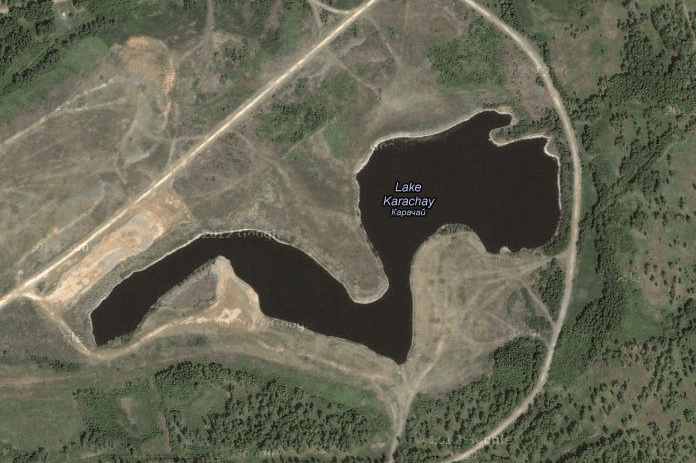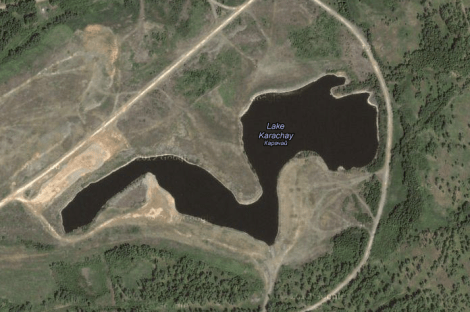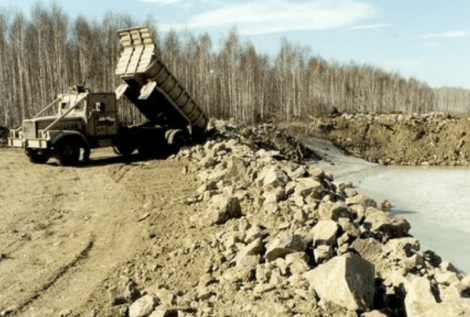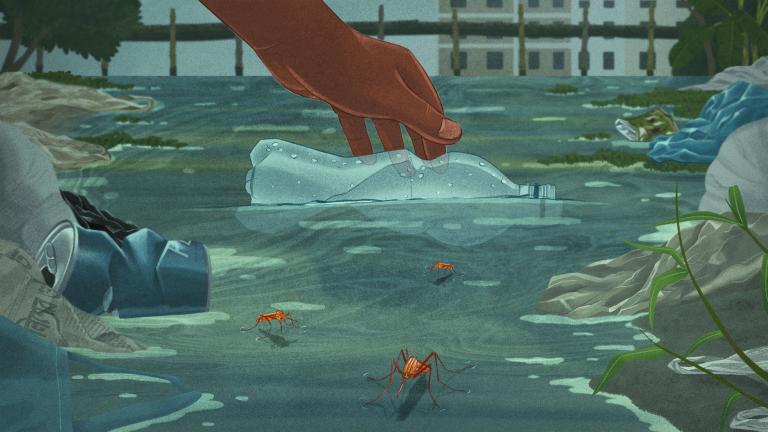Welcome to beautiful Lake Karachay, a Russian lake so tainted by nearby nuclear facilities that it’s considered the most polluted place on the planet. In 1990, just standing on the shore for an hour would give you a radiation dose of 600 roentgen, more than enough to kill you. On the plus side, lakefront property is probably really, really cheap.
You can’t really blame Lake Karachay for acting up — it comes from a really rough area. The lake is located within the Mayak Production Association, one of the largest — and leakiest — nuclear facilities in Russia. The Russian government kept Mayak entirely secret until 1990, and it spent that period of invisibility mainly having nuclear meltdowns and dumping waste into the river. By the time Mayak’s existence was officially acknowledged, there had been a 21 percent increase in cancer incidence, a 25 percent increase in birth defects, and a 41 percent increase in leukemia in the surrounding region of Chelyabinsk. The Techa river, which provided water to nearby villages, was so contaminated that up to 65 percent of locals fell ill with radiation sickness — which the doctors termed “special disease,” because as long as the facility was secret, they weren’t allowed to mention radiation in their diagnoses.
Perhaps unsurprisingly, this shady Siberian nuclear complex wasn’t overly concerned with safety. Besides dumping nuclear material in the lakes and rivers, Mayak also suffered several serious accidents in the 1950s and ’60s — including the time that Lake Karachay dried up and radioactive dust from the lakebed blew all over the nearby villages. But because Mayak and the city that serviced it (originally called Chelyabinsk-40 and then Chelyabinsk-65, both of which sound appropriately like radioactive materials) didn’t even appear on maps, nobody heard about this, including affected locals. Some of the people living nearby were evacuated after these accidents, but many were just left to inhale contaminated dust and drink tainted water.
Lake Karachay is now full of concrete that’s intended to keep radioactive sediment away from shore. Downstream water in the Techa river has almost no radioactive cesium, though you still can’t drink the upstream stuff and the riverbanks will be dangerous for hundreds of years. The Mayak nuclear facility still sucks out loud — it had its operating license revoked in 2003 for dumping waste into open water, surprise surprise — but at least things like “operating licenses” now exist. And today, 20 years after Mayak started appearing on maps again, it’s even possible that you could stand on the shores of Lake Karachay and not die. But we wouldn’t risk it.






